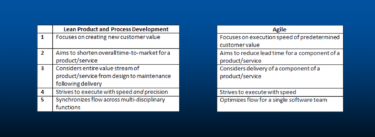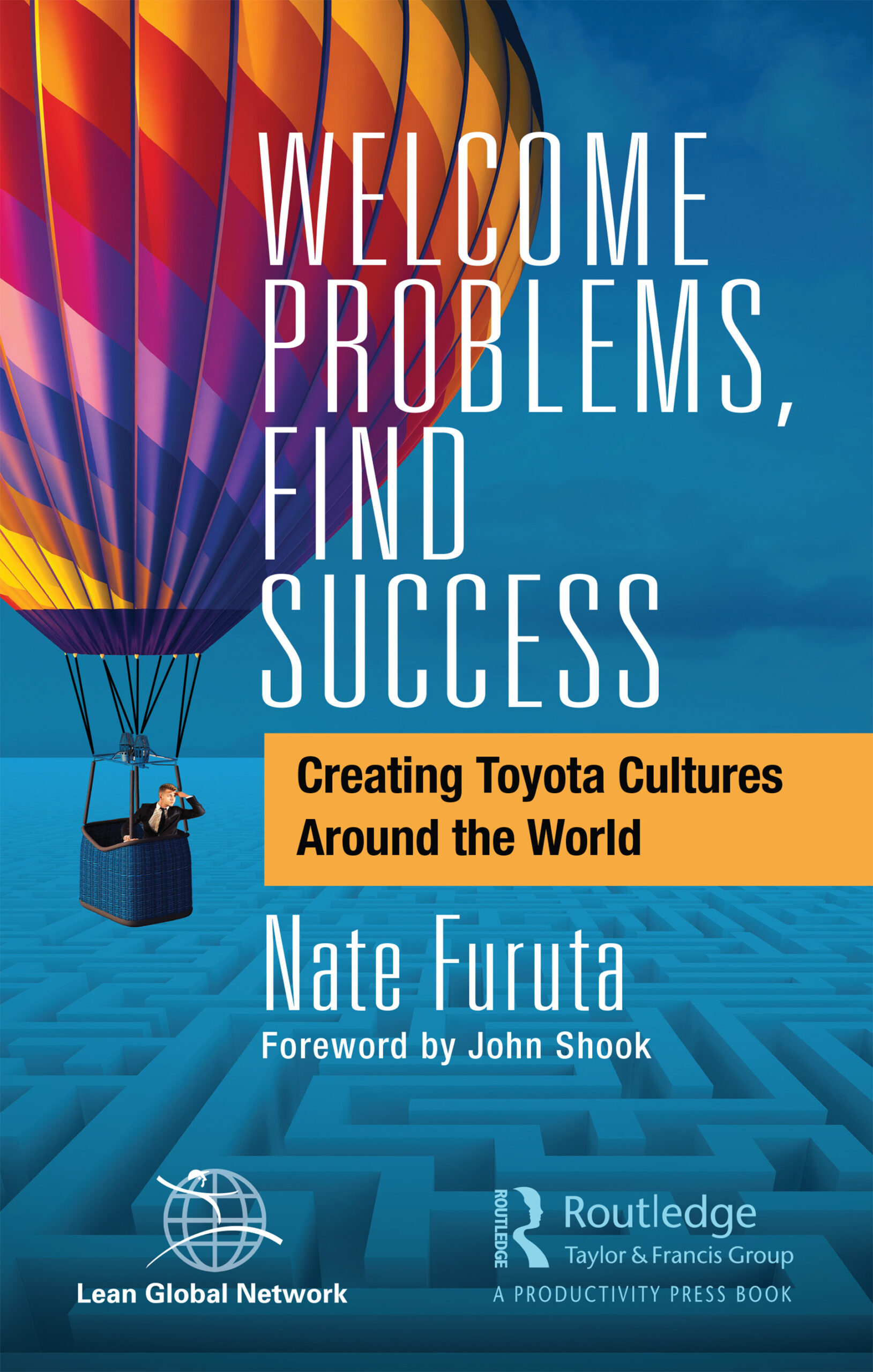Your organization’s products and services embody all your value-adding activities, plus they form critical connections to many other functions. As a result, they are the perfect platform for organizational change. In fact, Jim Morgan, an executive experienced with product-led transformations, asserts that if you really want to create lean enterprise change, you must shift your focus upstream from production to product development.
Jim Morgan is former COO of electric vehicle startup Rivian and the former global engineering director at Ford Motor Company during the product-lead turn-around under CEO Allen Mulally. He also is senior advisor to the Lean Enterprise Institute’s initiative in lean product and process development (LPPD) and co-author with Jeff Liker of Designing the Future. Chet Marchwinski, LEI communications director, caught up with him at the annual Designing the Future Summit. You can watch a video of their conversation here.
“By moving upstream and focusing your efforts earlier in the process, you can have a much bigger impact.”
Q: You get around a lot, you see a lot of companies, why do so many struggle with implementing lean in operations?
Jim: There are lots of reasons. What I see most often is that companies fail to enroll people in the process; they don’t make them part of the process. They establish separate initiatives and use isolated people to roll out lean, as opposed to actually using the work to enroll people into the change. They also see LPPD [lean product and process and development] as just an initiative, rather than as a way to do the work — as an enabler, to enhance performance.
Q: How has lean product and process development changed in the past decade? You and Jeff Liker, about 10 years ago, wrote your first book, The Toyota Development System. So, we have been watching the LPPD effort for 10 years. Where is it going?
Jim: It’s changed so much since our original research. Initially, I, Taka Fujimoto, Durward Sobek, Jeff Liker, and Allen Ward, did a significant amount of research into this. Since then, it’s been taken on by companies around the world.
I think at last year’s [Designing the Future] conference, we had, 10 or 12 countries represented at the conference. We have people practicing these methods in industries like aerospace, oil and gas exploration, consumer electronics — just a really broad group of organizations.
Michigan medicine is applying LPPD principles to develop better clinical processes. Last year, we heard from Kendra Leith from MIT’s D-Lab on how they are utilizing these principles and practices to improve their ability to reach out and improve the lives of under served markets around the world. So, as the use expands over time, it continues to evolve and grow, it’s really gratifying to see where it’s gone.
Q: In your latest book with Jeff Liker, Designing the Future, you note that companies tend to take a narrow view on improving current conditions and operations, targeting labor, cost reductions and manufacturing. What’s wrong with that?
Jim: There’s not necessarily anything wrong with that, but you have to first understand, what is the value you’re creating for your customer and if you don’t have that understanding, you could be implementing a cost reduction, while simultaneously sacrificing significant value from the perspective of your customer.
The other thing is that oftentimes if you begin your lean work on the shop floor, even though you call it kaizen, it’s really rework. It’s reworking things that should have been much, much better coming out of the development system. And so by moving upstream and focusing your efforts earlier in the process, you can have a much bigger impact.
Q: You touched on this earlier, just like lean production concepts spread to healthcare and other industries, are you seeing LPPD diffuse like that to other industries?
Jim: Absolutely, I mentioned healthcare, the mission of D-Lab, and the great work that they’re doing there. But, this year, for instance, I’ve begun to work with Sebastian Fixson, who is an associate dean of innovation at Babson College, not only on how to apply these principles in the development of students to be the next generation of developers; but also to think about developing an R&D function in academics.
Let’s see if we can apply these principles to develop new products and services in the academic world where the needs of the customers have changed dramatically. You could argue that universities maybe haven’t kept up with those needs, so trying to create a sort of product development function at an academic level is also an interesting application.
And as you mentioned, Rivian is applying these principles in an electric vehicle startup environment, which is proving to be extremely interesting.
Q: A related question now would be, Rivian is an EV startup. The other day, I read an article about block chain coming to manufacturing and, of course, we’ve seen articles about digitization. So, why should managers and executives watching us today learn about lean product and process development when all these other trends seem to be disrupting business?
Jim: So those, in my view, are primarily tools and I think they are very powerful tools, and we can do some really great things with them. So, I have nothing against them. But I also am wary of hearing about silver bullets. In my career, very seldom have new technologies turn out to be the silver bullets that solve everything.
And there can also be sort of a downside to these technologies, especially if they keep you from going to the gemba (Japanese for the “actual place” where value is added such as a factory floor) If they trap you in your office, looking at streams of data instead of enabling you to go to the gemba to see what’s really going on — either with your customer or with your manufacturing operation or wherever the gemba might be. I think that the principles of lean, in that respect, are timeless, and we should be thinking about how we can leverage these new tools and technologies, to make us even more effective, as opposed to thinking of them as replacements.
To Do:
- Register 4 team members now for the Designing the Future Summit, June 18-19, 2020, and the 5th member attends FREE! Sign up here to catch keynotes by Jim Morgan and other lean product development practitioners in 2020, and to watch highlights from the 2019 conference.
- Sign up for the Lean Product and Process Development eletter and access to thought-leading content at the LPPD website. Click the link, then scroll down to the orange “stay updated” banner. Subscriber information is never shared, sold, or swapped.







